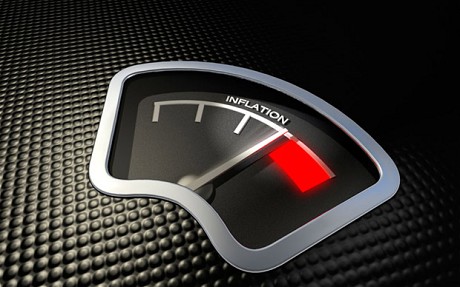Nigeria’s inflation rate advanced for a fifth month in July, bolstering the case for policy makers to keep interest rates on hold.
Inflation accelerated to 8.3 percent from 8.2 percent a month earlier, the National Bureau of Statistics said in a statement e-mailed today from the capital, Abuja. It matched the median estimate in a Bloomberg survey of nine analysts. In the month, prices rose 0.7 percent, the statistics office said.
The West African nation’s central bank cited inflation risks, including an expected increase ingovernment spending before 2015 elections and rising food costs, as one of the main reasons it left the benchmark interest rate unchanged in July. The key rate will probably be held steady until after the polls, bank Deputy Governor Kingsley Moghalu said.
Consumer-price growth will probably average 7.5 percent this year, World Bank economist John Litwach said in a July forecast. The country targets 9 percent as the upper limit.
Nigeria became the fourth country in West Africa where Ebola has been reported, with 12 cases and four deaths, including a Liberian man who introduced the disease in the country when he flew into the commercial capital, Lagos last month. Should the virus spread beyond the cases being monitored in Africa’s largest economy, it may be detrimental to the oil and gas industry and impact the economy, according to New York-based Teneo Intelligence. The worst-ever outbreak of the viral disease has hit Liberia, Guinea and Sierra Leone the hardest, killing 1,145 people as of Aug. 13.

